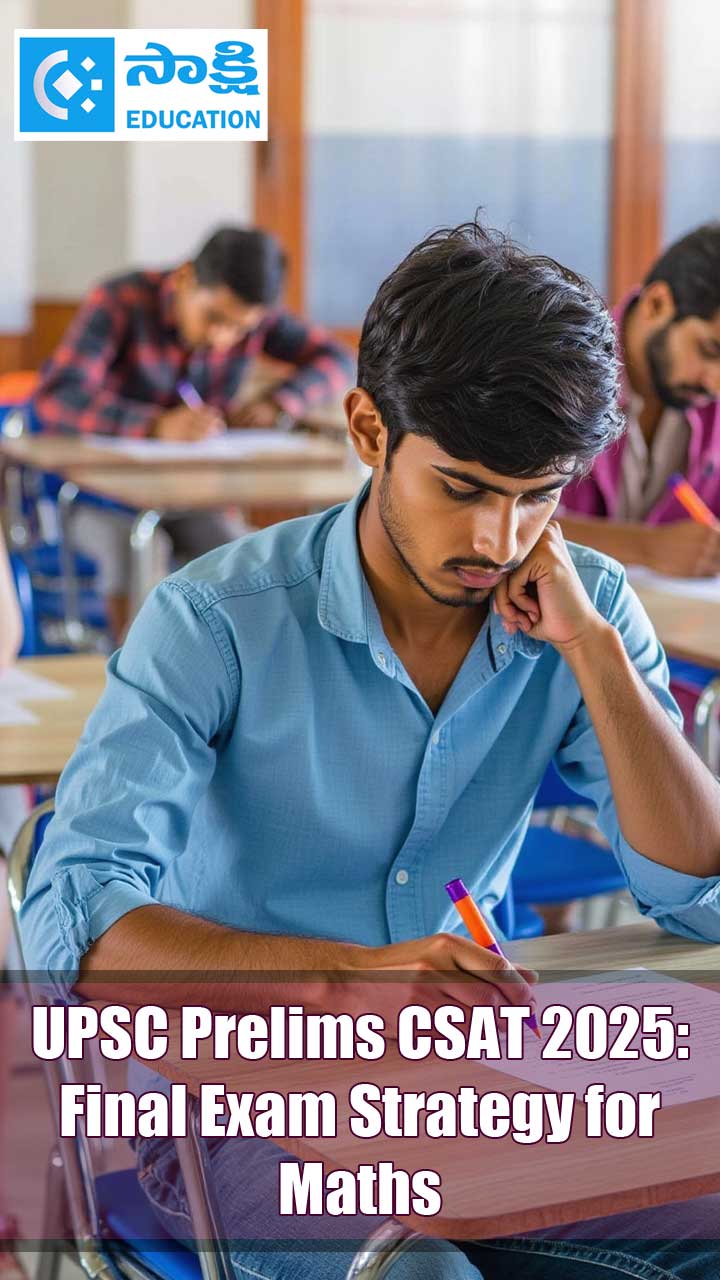Be your Word`s Worth - 2
Sakshi Education
Learning any language is a skill and three things are required to master the skill. The first one is practice, the second one is practice and the third most important thing is again PRACTICE!! This practice principle, if applied everyday, makes any task easy, effortless and enjoyable. Once we enjoy a particular activity, learning comes naturally and effortlessly. Why do you think while watching IPL matches time flies and hours melt into seconds, whereas, doing any job that we do not like feels heavy and burdensome with ten hours packed in ten minutes! We know time is relative depending on the activity we are involved in.
To most of the students coming from a regional/rural background, learning English language appears to be difficult because of certain assumed notions but the truth is far from it. If a student spends a regular half an hour every day for English learning while in the engineering course of study, he/she gains a reasonable command over the language. And confidence walks along with. There are many students who do very well in content-heavy engineering subjects, but fail to understand the approach to learn English language. English pronunciation, vocabulary and grammar pose a challenge to students coming from regional/rural background. But the students can definitely meet this challenge if they work towards it. And communication skills, fortunately or otherwise play a very important role in securing a job. The skill in English language has almost become synonymous with successful job offers in MNCs.
Vocabulary is considered to be a difficult part of the bargain for students. And words that look similar cause more confusion. Let us take a look at a few examples where most of the students go wrong in identifying the difference between the identical words. These sets of words are often used by examiners to test the students' knowledge of the language. I have made an attempt here to explain the difference in the words with the help of examples. A few more sample sentences are given for you to choose the right word using the explanation given in the example.
The pair of words that is most often confused is hard and hardly. For example, when Sachin hit the ball hard, it went spinning into the sky and over the boundary for a sixer. Here hard means with great effort/force. We also see in the same match how another cricketer hardly makes any runs before leaving the crease. Hardly means almost not. It has a negative meaning.
Another area of confusion lies with urban and urbane, rural and rustic. A person who lives in a city lives in an urban area. Urban means relating to city. But a person may belong to a village and may still have urbane manners and outlook. Urbane denotes that which is civilized and refined. It has nothing to do with living in a city. Similarly words like rural and rustic. Rural areas are areas pertaining to villages. We hear about rural development programs. They are programs meant to develop the villages. Rustic is uncivilized and crude. We use it in the sense of rustic pleasures, rustic approach and rustic furniture.
Harish: "Satish, do you go to karate classes everyday?" How do you go?
Satish: "No Harish, I do not go every day. My classes are on Mondays, Wednesdays and Fridays. I go to karate classes on alternate days. I go by bus as there is no alternative available. Alternate means every other or a second one of the series. Alternative means choice, option or method.
As the exams approach, we find our parents, family members and teachers giving us a long list of dos and don'ts. It is all about advice and advise. My parents often advise me to study what I like most and I like their advice. Advice and advise mean the same thing but they differ in their functions. Advice is a piece of opinion or recommendation while advise is to offer any opinion or suggestion. The act of giving advice is advise.
It's and Its is another slippery area. It's is a short form for it. When you say it's the IPL season and I like its mood in the country, the it's means it is. The its in the sentence means belonging to it, (for example your belong to you, his belongs to he and similarly its belongs to it).
Now that we have learnt the differences between the identical words, let us see how well we can use them correctly. Let us look at the sentences below and choose the right word from the brackets to fill in the blanks.
To most of the students coming from a regional/rural background, learning English language appears to be difficult because of certain assumed notions but the truth is far from it. If a student spends a regular half an hour every day for English learning while in the engineering course of study, he/she gains a reasonable command over the language. And confidence walks along with. There are many students who do very well in content-heavy engineering subjects, but fail to understand the approach to learn English language. English pronunciation, vocabulary and grammar pose a challenge to students coming from regional/rural background. But the students can definitely meet this challenge if they work towards it. And communication skills, fortunately or otherwise play a very important role in securing a job. The skill in English language has almost become synonymous with successful job offers in MNCs.
Vocabulary is considered to be a difficult part of the bargain for students. And words that look similar cause more confusion. Let us take a look at a few examples where most of the students go wrong in identifying the difference between the identical words. These sets of words are often used by examiners to test the students' knowledge of the language. I have made an attempt here to explain the difference in the words with the help of examples. A few more sample sentences are given for you to choose the right word using the explanation given in the example.
The pair of words that is most often confused is hard and hardly. For example, when Sachin hit the ball hard, it went spinning into the sky and over the boundary for a sixer. Here hard means with great effort/force. We also see in the same match how another cricketer hardly makes any runs before leaving the crease. Hardly means almost not. It has a negative meaning.
Another area of confusion lies with urban and urbane, rural and rustic. A person who lives in a city lives in an urban area. Urban means relating to city. But a person may belong to a village and may still have urbane manners and outlook. Urbane denotes that which is civilized and refined. It has nothing to do with living in a city. Similarly words like rural and rustic. Rural areas are areas pertaining to villages. We hear about rural development programs. They are programs meant to develop the villages. Rustic is uncivilized and crude. We use it in the sense of rustic pleasures, rustic approach and rustic furniture.
Harish: "Satish, do you go to karate classes everyday?" How do you go?
Satish: "No Harish, I do not go every day. My classes are on Mondays, Wednesdays and Fridays. I go to karate classes on alternate days. I go by bus as there is no alternative available. Alternate means every other or a second one of the series. Alternative means choice, option or method.
As the exams approach, we find our parents, family members and teachers giving us a long list of dos and don'ts. It is all about advice and advise. My parents often advise me to study what I like most and I like their advice. Advice and advise mean the same thing but they differ in their functions. Advice is a piece of opinion or recommendation while advise is to offer any opinion or suggestion. The act of giving advice is advise.
It's and Its is another slippery area. It's is a short form for it. When you say it's the IPL season and I like its mood in the country, the it's means it is. The its in the sentence means belonging to it, (for example your belong to you, his belongs to he and similarly its belongs to it).
Now that we have learnt the differences between the identical words, let us see how well we can use them correctly. Let us look at the sentences below and choose the right word from the brackets to fill in the blanks.
- There is no____(alternative, alternate) for hard work.
- As I am good at sports, my teachers ____ me to make a career out of it and I want to follow their ____(advice, advise)
- I belong to a ____ (rural, rustic) area and I like my village and ____ (it's, its) natural beauty .
- We do not get water supply in the city everyday. The Water Board supplies water on ____ (alternate, alternative) days.
- Though some leaders are trying ____ to check corruption in public life, there is ____any improvement in the situation as of now. (hard, hardly)
Published date : 08 Aug 2015 04:45PM



















